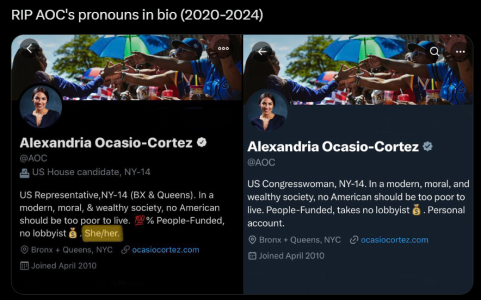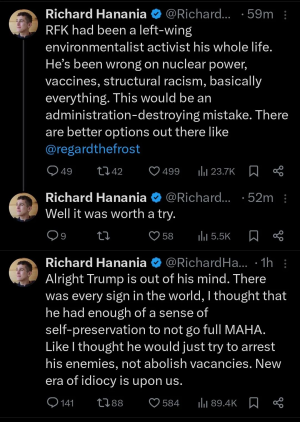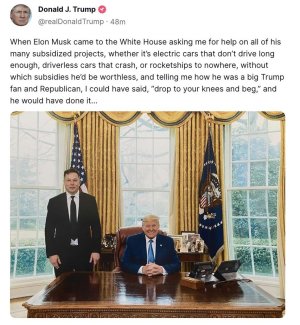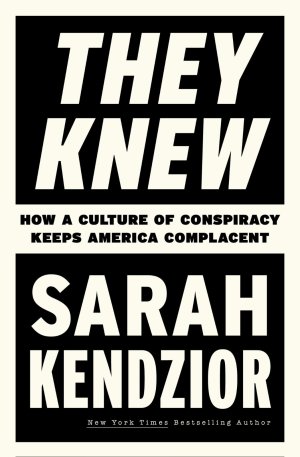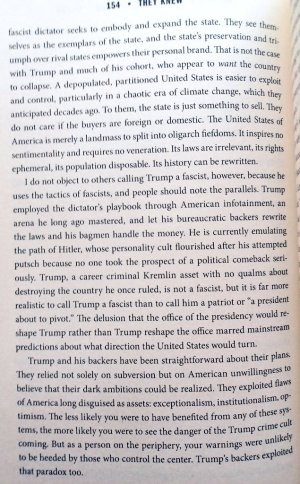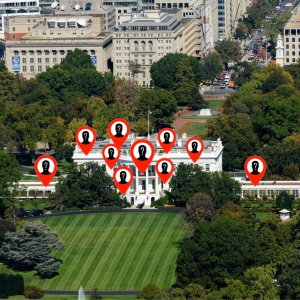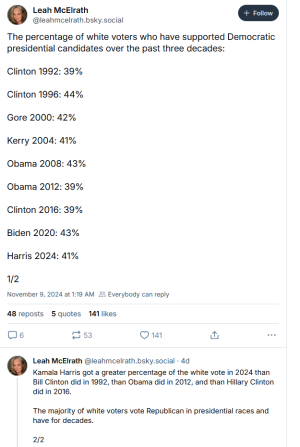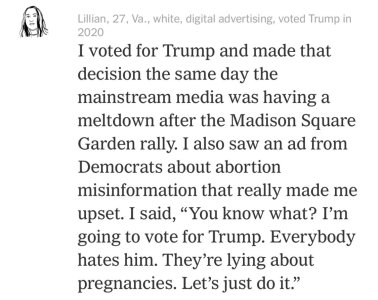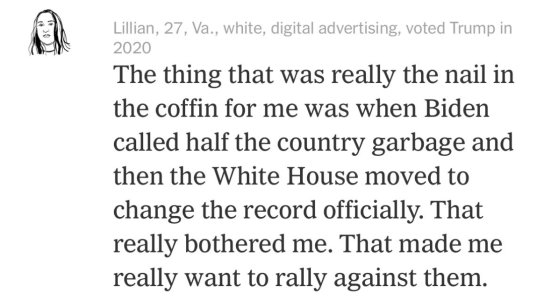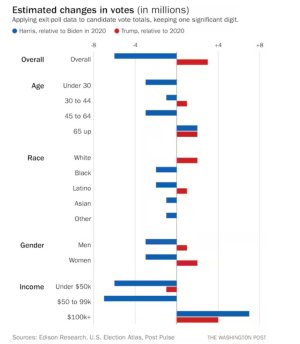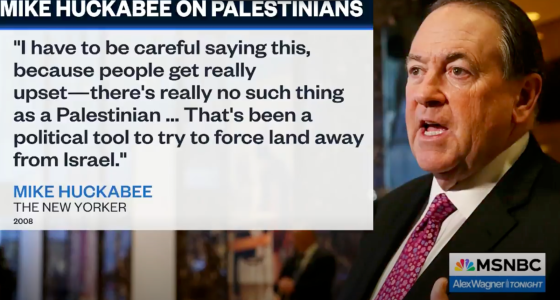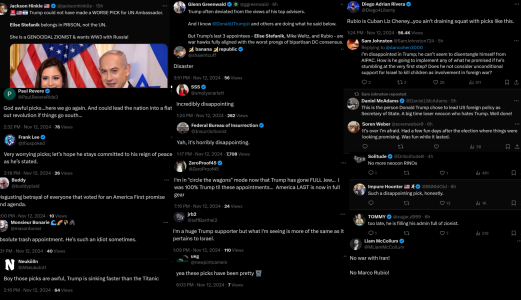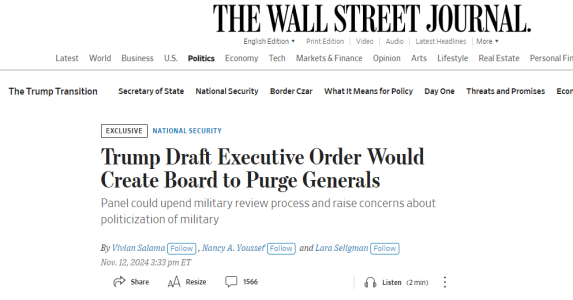- Jan 12, 2013
- 26,837
- 38,455
Excerpt:
The president, who seemed to believe that other individual countries would largely equal the United States, was furious that his administration was being portrayed in the media as taking by far the toughest stance on Russia.
His briefers tried to reassure him that the sum total of European expulsions was roughly the same as the U.S. number.
“I don’t care about the total!” the administration official recalled Trump screaming. The official, like others, spoke on the condition of anonymity to discuss internal deliberations.
Growing angrier, Trump insisted that his aides had misled him about the magnitude of the expulsions. “There were curse words,” the official said, “a lot of curse words.”
https://www.washingtonpost.com/worl...ory.html?noredirect=on&utm_term=.c619a7e10813
Trump, a reluctant hawk, has battled his top aides on Russia and lost
(Lengthy article)
The president, who seemed to believe that other individual countries would largely equal the United States, was furious that his administration was being portrayed in the media as taking by far the toughest stance on Russia.
His briefers tried to reassure him that the sum total of European expulsions was roughly the same as the U.S. number.
“I don’t care about the total!” the administration official recalled Trump screaming. The official, like others, spoke on the condition of anonymity to discuss internal deliberations.
Growing angrier, Trump insisted that his aides had misled him about the magnitude of the expulsions. “There were curse words,” the official said, “a lot of curse words.”
https://www.washingtonpost.com/worl...ory.html?noredirect=on&utm_term=.c619a7e10813
Trump, a reluctant hawk, has battled his top aides on Russia and lost
(Lengthy article)
President Trump seemed distracted in March as his aides briefed him at his Mar-a-Lago resort on the administration’s plan to expel 60 Russian diplomats and suspected spies.
The United States, they explained, would be ousting roughly the same number of Russians as its European allies — part of a coordinated move to punish Moscow for the poisoning of a former Russian spy and his daughter on British soil.
“We’ll match their numbers,” Trump instructed, according to a senior administration official. “We’re not taking the lead. We’re matching.”
The next day, when the expulsions were announced publicly, Trump erupted, officials said. To his shock and dismay, France and Germany were each expelling only four Russian officials — far fewer than the 60 his administration had decided on.
The president, who seemed to believe that other individual countries would largely equal the United States, was furious that his administration was being portrayed in the media as taking by far the toughest stance on Russia.
His briefers tried to reassure him that the sum total of European expulsions was roughly the same as the U.S. number.
“I don’t care about the total!” the administration official recalled Trump screaming. The official, like others, spoke on the condition of anonymity to discuss internal deliberations.
Growing angrier, Trump insisted that his aides had misled him about the magnitude of the expulsions. “There were curse words,” the official said, “a lot of curse words.”
The incident reflects a tension at the core of the Trump administration’s increasingly hard-nosed stance on Russia: The president instinctually opposes many of the punitive measures pushed by his Cabinet that have crippled his ability to forge a close relationship with Russian President Vladimir Putin.
The past month, in particular, has marked a major turning point in the administration’s stance, according to senior administration officials. There have been mass expulsions of Russian diplomats, sanctions on oligarchs that have bled billions of dollars from Russia’s already weak economy and, for the first time, a presidential tweet that criticized Putin by name for backing Syrian leader Bashar al-Assad.
On Friday night, the United States, acting with Britain and France, attacked Assad’s chemical weapons facilities as punishment for what they say was his use of agents on civilians. U.N. Ambassador Nikki Haley said Sunday that the administration plans to announce additional sanctions against Russia soon.
A White House spokesman stressed that Trump’s Russia policy has been “consistent and tough” from his earliest days in office, and that the president supports the recent moves.
“While we would like to work with Russia, when faced with their malign activities on the international stage, the president will hold them accountable,” Raj Shah said.
Some close to Trump say the recent measures are the product of an ongoing pressure campaign to push the president to take a more skeptical view of the Russian leader.
“If you’re getting briefed by the CIA director on all this stuff, there’s a point where, even if you’re Donald J. Trump, you think, ‘Hmm [Putin’s] a really bad guy,’ ” said former House speaker Newt Gingrich, an informal Trump adviser.
Others note Trump’s ongoing unease with his own policy. Even as his administration has ratcheted up the pressure on Putin’s inner circle, Trump has continued in recent weeks to make overtures to the Russian leader, congratulating him on his election win and, in a move that frustrated his national security team, inviting him to visit the White House.
“I think I could have a very good relationship with Russia and with President Putin,” Trump said at a news conference just days after the largest expulsion of Russians in U.S. history. “And if I did, that would be a great thing. And there’s also a possibility that won’t happen. Who knows?”
Trump came to the White House believing that his personal relationships with other leaders would be central to solving the world’s thorniest foreign policy problems, administration officials said. In Trump’s mind, no leader was more important or powerful than Putin, they said.
A cooperative relationship with the Russian leader could help Trump find solutions to problems that bedeviled his predecessor in places such as Ukraine, Syria and North Korea.
Former president Barack Obama had a tense relationship with Putin. Trump said he could do better but felt stymied by the media, Congress and special counsel Robert S. Mueller III’s probe into Russia’s interference in the 2016 election.
Any conciliatory move he made toward Putin came under heavy scrutiny. “When will all the haters and fools out there realize that having a good relationship is a good thing,” Trump tweeted in November. “They are always playing politics — bad for our country.”
Privately, he complained to aides that the media’s fixation on the Mueller probe was hobbling his effort to woo Putin. “I can’t put on the charm,” the president often said, according to one of his advisers. “I’m not able to be president because of this witch hunt.”
As the months passed, the president’s options for improving relations with Russia narrowed. In late July, Congress overwhelmingly approved new sanctions on Moscow that were widely seen as a rebuke of Trump’s efforts to reach out to Putin. It took aides four days to persuade Trump to sign the bill, which had cleared with a veto-proof majority.
Trump advisers were reluctant to even raise the topic of Russian interference in the election, which Trump equated with Democrats’ efforts to undermine his victory. “It’s just kind of its own beast,” a senior national security official said. “It’s been a constant from Day One.”
Gingrich and other Trump advisers said CIA Director Mike Pompeo, the secretary of state nominee, was one of the few advisers who could address Russia without raising the president’s ire.
In January, Pompeo told the BBC that he had “every expectation” that Russia would make an effort to disrupt the 2018 midterm elections. Privately, he pushed Trump to take a tough line on Moscow.
One area where aides worked to change Trump’s mind was on a proposal to sell antitank missiles to Ukraine. Obama had opposed the move for fear of angering Moscow and provoking a Russian escalation.
Trump initially was also hesitant to support the move, which had the backing of the Pentagon and State Department. “He would say, ‘Why is this our problem? Why not let the Europeans deal with Ukraine?” a U.S. official said.
Aides described a lobbying effort by Pompeo, Haley and Defense Secretary Jim Mattis in support of the lethal aid. “I just want peace,” Trump would say when pressed on Ukraine.
His aides countered that the weapons would help achieve peace by deterring further Russian aggression.
To bring the president around, U.S. officials argued that the $47 million military aid package could be a boon to U.S. taxpayers if cash-strapped Kiev stabilized and someday became a reliable buyer of American military hardware.
To the surprise of even his closest advisers, the president agreed late last year to the weapons transfer on the condition that the move be kept quiet and made without a formal news release.
Aides tried to warn him that there was almost no way to stop the news from leaking.
When it broke, Russia hawks in Congress praised the president. “Another significant step in the right direction,” said Sen. John McCain (R-Ariz.), a frequent Trump critic. But Trump was still furious, an administration official said.
“For some reason, when it comes to Russia, he doesn’t hear the praise,” a senior administration official said. “Politically speaking, the best thing for him to do is to be tough. . . . On that one issue, he cannot hear the praise.”
The poisoning in Britain in early March of former Russian spy Sergei Skripal and his daughter, Yulia, with a nerve agent upped the tension between Trump and his advisers.
Initially, the president was hesitant to believe the intelligence that Russia was behind the attack — a fact that some aides attributed to his contrarian personality and tendency to look for deeper conspiracies. To persuade him, his advisers warned that he would get hammered in the press if he was out of step with U.S. allies, officials said.
“There was a sense that we couldn’t be the only ones not to concede to reality,” the Trump adviser said.
The next task was convincing Trump that he should punish Putin in coordination with the Europeans. “Why are you asking me to do this?” Trump asked in a call with British Prime Minister Theresa May, according to a senior White House official. “What’s Germany going to do? What about France?”
He was insistent that the poisoning in the English city of Salisbury was largely a European problem and that the allies should take the lead in moving against Russia.
Trump told aides in an Oval Office session on March 23 that he was confident French President Emmanuel Macron would deliver on promises to expel Russian officials but that he was worried about German Chancellor Angela Merkel, whose country depends on Russian oil and gas.
The next day, at his Mar-a-Lago resort, Trump’s aides gave him the final memo with the precise number of American expulsions.
The president signed the order on the plane back to Washington.
Trump was furious as news reports described the expulsions as the largest purge in U.S. history and noted the wide gap between the United States and its allies. “If you had told me France and Germany were only doing [four], that’s what we would have done,” one official recalled him saying.
Some officials said it was a simple misunderstanding. Others blamed the president’s strained relationship with his top aides, including H.R. McMaster, his former national security adviser.
“Anytime McMaster came in with a recommendation, he always thought it was too much,” the Trump adviser said. “They were just oil and water on everything. So his natural impulse was, if this was your recommendation, it must be too far.”
In the days since the expulsions, Trump has continued to take tough new actions to punish Russia. Early this month, the administration sanctioned 17 senior Russian officials and seven oligarchs and their companies, prompting Russia’s foreign ministry to threaten a “harsh response.”
The sanctions were followed by an alleged nerve-gas attack that killed dozens of Syrians in the rebel-held town of Douma, east of Syria’s capital. “President Putin, Russia and Iran are responsible for backing Animal Assad,” Trump tweeted in his first by-name criticism of the Russian leader. “Big price to pay.”
The relatively modest airstrikes that Trump ordered Friday were designed to deter Assad without provoking a broader military conflict with Russia.
Some European diplomats in Washington question whether the tough moves have Trump’s full support. “This wouldn’t be the policy unless Trump supports it. . . . Yes?” asked one ambassador.
Russia analysts seem just as mystified. “This is a man who if he had his druthers would be pursuing a much more open and friendly policy with Russia,” said Angela Stent, a former White House official and professor at Georgetown University. “The United States essentially has three Russia policies: the president’s, the executive branch’s and Congress’s.”
Less than a month after Trump shocked his foreign policy advisers by inviting Putin to the White House, the prospects for a visit any time soon seem remote. No date has been set, White House officials said.
“We’re not rushing to do this meeting,” a senior administration official said. “Our team wasn’t thrilled about the idea.”








